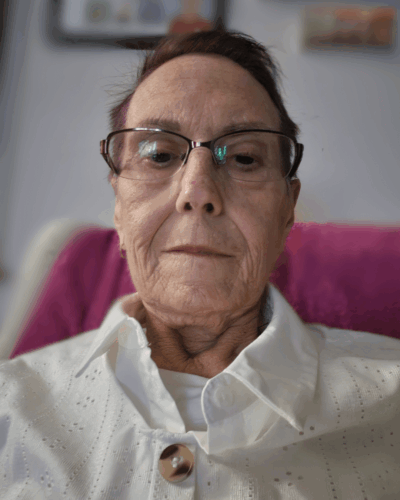Staying Strong Through It All: Cheryl’s Battle with Hodgkin Lymphoma
When Cheryl went for routine kidney scans, she had no idea that her life was about to change. A call from her GP sent her straight to the emergency department, where she learned she had a mass. The news was unexpected, and it took a week in hospital before she could bring herself to tell her children.
Treatment started quickly, and Cheryl was determined to stay positive. “I put on a brave face and told everyone I was going to beat this, and I did.” But just as she finished chemotherapy, another challenge arose. A week after returning home, she struggled to breathe and was rushed back to hospital. This time, she was transferred to a heart hospital, where she was diagnosed with heart failure. “That was scarier than the lymphoma,” she admits. “But the hospitals that treated me saved my life.”
The Rollercoaster of Treatment
Cheryl’s chemotherapy cycles were tough. “I had a good week, then a down week, then back to a good week again,” she recalls. Like many undergoing treatment, she lost her hair, but she took it in stride. “Hair is just that.. it grows back.”
One of the biggest challenges wasn’t physical but emotional. Cheryl wanted to stay strong, especially for her children and grandchildren. “I never let them see me down. Always a smile and a mindset that I was going to beat it.”
Support That Made All the Difference
Accessing treatment was manageable, she travelled half an hour to the hospital, but finding help at home was more difficult. “It was hard to get a cleaner or a gardener,” she says, though she had plenty of support while in hospital.
Her husband became her rock, driving her to appointments and staying by her side every day. Their four children were also an incredible support, helping in countless ways throughout her treatment. To focus on her health, Cheryl stepped away from her volunteer work. “I needed to work on myself,” she explains.
Lymphoma Australia’s Care in a Tough Time
During treatment, Cheryl received a patient care pack from Lymphoma Australia, which offered much-needed support during a challenging time. She first learned about the organisation through the hospital and found comfort in knowing help was available.
A Message of Hope
Now in remission, Cheryl has a simple but powerful message for others facing lymphoma: “Never give up. A strong mind will help you through it.” She encourages others to focus on what’s ahead. “Don’t dwell on your condition. Just look forward to your future and stay strong.”
Cheryl’s story is a testament to resilience, hope, and the power of a positive mindset. Though the road wasn’t easy, she faced each challenge with determination. Now, as she works on regaining her strength, she continues to inspire those around her.